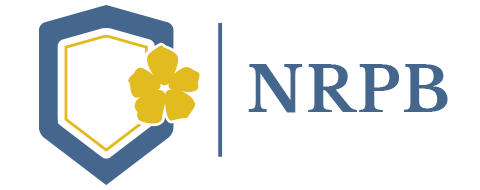
1What does SENA stand for and what is it?
Called the Socio-Economic Needs Assessment (SENA), it is a household survey that collects information on different topics, such as household assets and debts, borrowing and saving, education level, employment status, lifestyle, community involvement, etc. The survey aims to to help give indications on the status of households in St. Maarten.
2Why is SENA important and why are we collecting it now?
Since 2017, Sint Maarten has experienced two hurricanes and an ongoing pandemic. These events may have changed the lives of St. Maarteners in different ways and there is a need for up-to-date information about individual and household conditions. The collected data will provide the Government of Sint Maarten with accurate and reliable facts about how residents are managing economically and socially, which will help to inform policies and plans that can impact you, your community, and the country in general.
3Is the SENA the same as the Census or Pre-Census?
This survey is not connected with the census or pre-census. The SENA survey collects data from a set of randomly selected households while the census collects data on all households. Additionally, the census is collected every 10 years. The census is preceded by a pre-census, which aims at reaching a sample of the population to test the exact census questionnaire that the Department of Statistics (STAT) would use.
4Why should I take part in the SENA?
Everyone’s circumstances are relevant to this study. By taking part in the SENA survey, you will ensure that your experiences and circumstances become an important part of the overall picture of life in Sint Maarten. Your information will help influence matters that affect us all, such as policy development and disaster management.
5What can I expect when the survey starts?
If your household is selected, an interviewer would visit your household between the hours of 8:00am to 7:00pm to conduct the interview. The survey will be conducted face-to-face using computer-assisted questionnaires on a tablet computer. Interviewers will wear visible name badges to identify themselves.
6What measures have you taken to mitigate the spread of COVID-19 during the interviews?
We have strict safety protocols in place and our interviewers have been dully trained to conduct this interview under COVID-19 circumstances. We provide each interviewer with a mask to be used during each household visit and he/she will provide a brand-new mask for you to use during the interview if you do not have one. We also provide the interviewer with hand sanitizers for their use before entering and after leaving each household. The interviewer will not be closer than 2 meters from you. If you have an open-air location, the interviewer may request that the interview be conducted outdoors.
7Are the questions in the survey only about me?
No. We expect to collect data on the entire household to obtain a complete understanding of everyone’s circumstances.
8Would you need to speak to every member of my household?
No, we do not intend to speak to every member of the household. We prefer to speak to the head of the household or the individual with the most knowledge about the members of the household.
9What about my confidentiality and how will you handle my information?
All identifying information that you provide will be confidential and will not be used or shared without your consent. The data produced will not identify you or anyone in your household unless you give consent.
10Who is carrying out the SENA?
The SENA is a collaborative effort between the NRPB, Ministry of VSA, and the Department of STAT within the Ministry of TEATT.
The SENA is a part of the Emergency Income Support and Training Project (EISTP) of the Sint Maarten Trust Fund, which is financed by the Government of the Netherlands, managed by the World Bank, and implemented by the NRPB on behalf of the Government of Sint Maarten.
11Will I be paid for participating?
No. We will not offer any payment or stipend for your participation. We hope that you will understand that the collection of this information is important for the development of policies that will positively impact you and the wider community.
12Why has my household been selected but not my neighbor's?
A sample of households have been selected at random based on the Ministry of VROMI’s address database using a computerized tool. Once selected, a household cannot be replaced by another as this would affect the representativeness of the sample. This means your participation is especially important to the success of this study by ensuring that all groups are accurately represented.
13Do I need to provide identifying information?
No, you are not required to provide identifying information.
14How will I know that the interviewers are from the Government?
Each interviewer must wear a visible name badge with the logos of the Government of Sint Maarten and NRPB.
15How long is the survey?
The average time required to complete the survey varies. For a household with 2 members, it will take approximately 1 hour.
16When will the results of the survey be available?
The results of the survey will be available by July 2022. The information will be anonymous and your information – combined with information from all interviews – will provide statistics about the features of households in Sint Maarten.
17If I have a complaint or grievance, what can I do?
You can file a complaint or grievance in any of the following ways:
- You can visit the NRPB website and follow the complaints procedure as detailed in the following link. https://nrpbsxm.org/complaints-procedure/
- You can send an e-mail to complaints@nrpbsxm.org
- You can send a letter to the NRPB Safeguards Department, with the following address: #57 W. J. A. Nisbeth Road, Philipsburg, Sint Maarten.
- You can contact the fieldwork coordinator from the Department of Statistics (STAT) by calling 1-721-542-2026 ext. 2660.
- You can send an e-mail to the fieldwork coordinator to Jaghaira.Lioe-A-Tjam@sintmaartengov.org
Want to know more? Check out this video!
